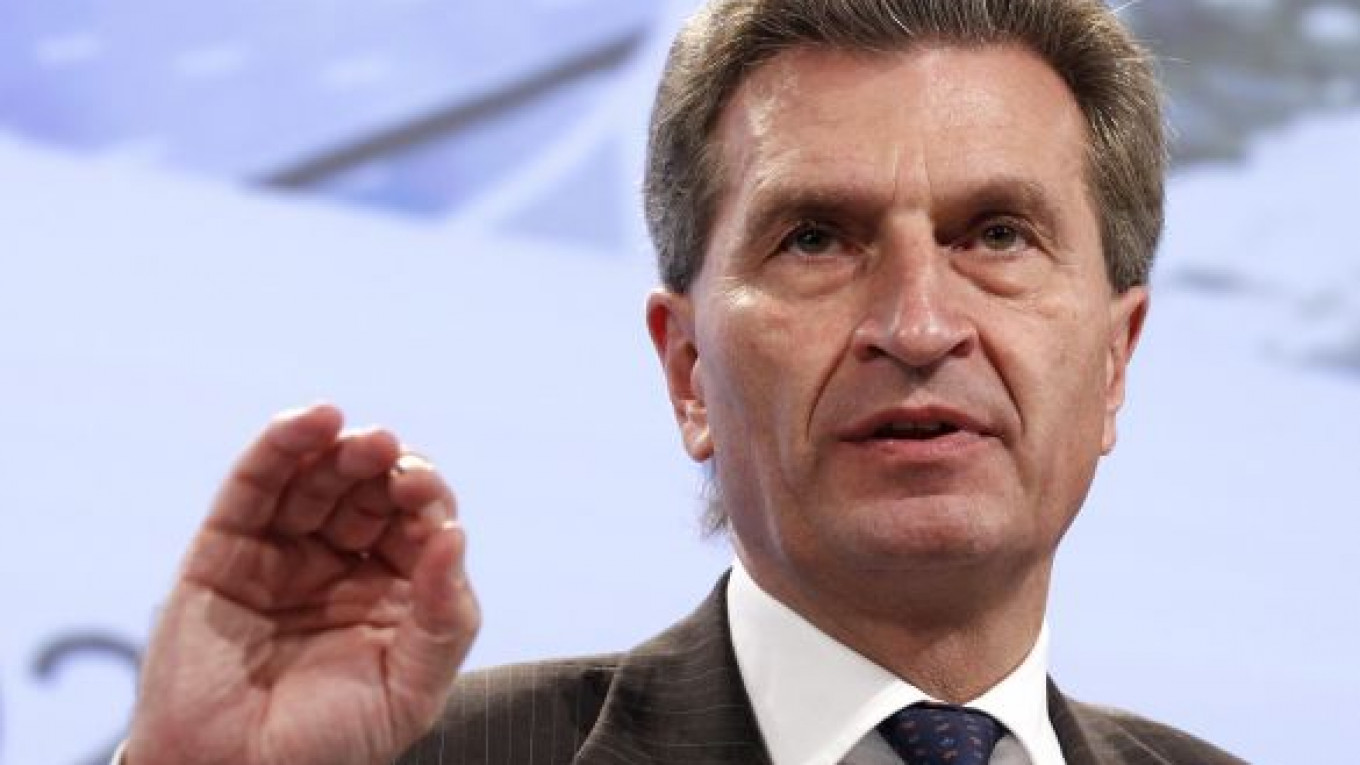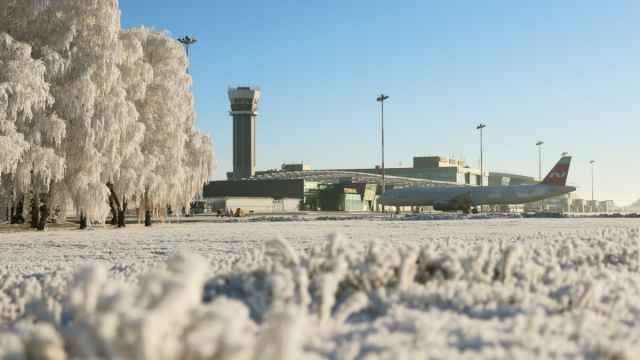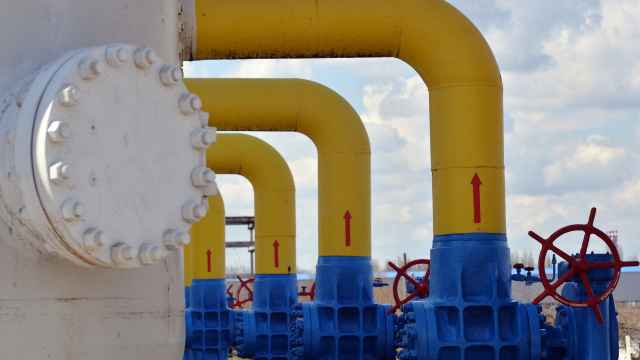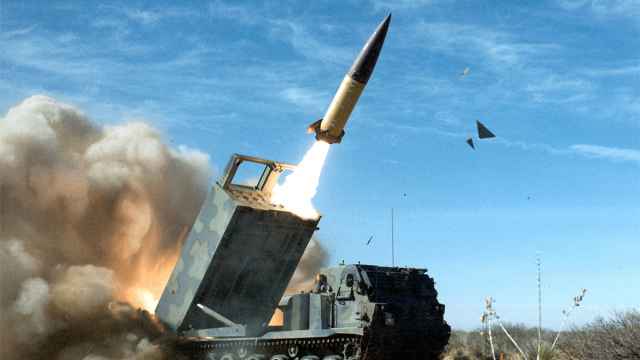BRUSSELS — Europe's energy chief unveiled a strategy Wednesday for investing 1 trillion euros ($1.4 trillion) over the next decade in a shared EU energy network to bolster solidarity and curb rising dependence on fossil fuel imports, including from Russia.
European Union Energy Commissioner Guenther Oettinger said the narrow interests of national capitals had prevailed for too long. He asked European leaders to back his plan for unity at the first EU energy summit on Feb. 4.
His plea came a day after the International Energy Agency forecast global oil supplies would peak around 2035, when oil prices would exceed $200 a barrel, kicking off a scramble for alternative energy sources.
"To have an efficient, competitive and low-carbon economy, we have to Europeanize our energy policy and focus on a few, but pressing, priorities," Oettinger said in a statement. "Over the next 10 years, overall energy infrastructure investments in the EU of 1 trillion euros are needed," he added.
The money would come from taxpayers and energy firms themselves.
One top priority is to interlink the gas and electricity networks of the EU's 27 countries, so that no single state will be starved of energy as happened when imports of Russian gas via Ukraine were cut for three freezing weeks in January 2009.
"By 2015, no member state should be isolated," a Commission statement said.
The strategy will be backed up by binding laws in the years ahead, along with incentives to help homeowners and local authorities renovate drafty buildings to cut fuel bills.
The idea of uniting Europe's infrastructure is not new, nor is that of liberalizing the markets for the gas and electricity that flow through it.
But Oettinger's commitment to the concept was never guaranteed given that Germany, his homeland, lobbied hard in 2008 to weaken the legislation.
A Message from The Moscow Times:
Dear readers,
We are facing unprecedented challenges. Russia's Prosecutor General's Office has designated The Moscow Times as an "undesirable" organization, criminalizing our work and putting our staff at risk of prosecution. This follows our earlier unjust labeling as a "foreign agent."
These actions are direct attempts to silence independent journalism in Russia. The authorities claim our work "discredits the decisions of the Russian leadership." We see things differently: we strive to provide accurate, unbiased reporting on Russia.
We, the journalists of The Moscow Times, refuse to be silenced. But to continue our work, we need your help.
Your support, no matter how small, makes a world of difference. If you can, please support us monthly starting from just $2. It's quick to set up, and every contribution makes a significant impact.
By supporting The Moscow Times, you're defending open, independent journalism in the face of repression. Thank you for standing with us.
Remind me later.






